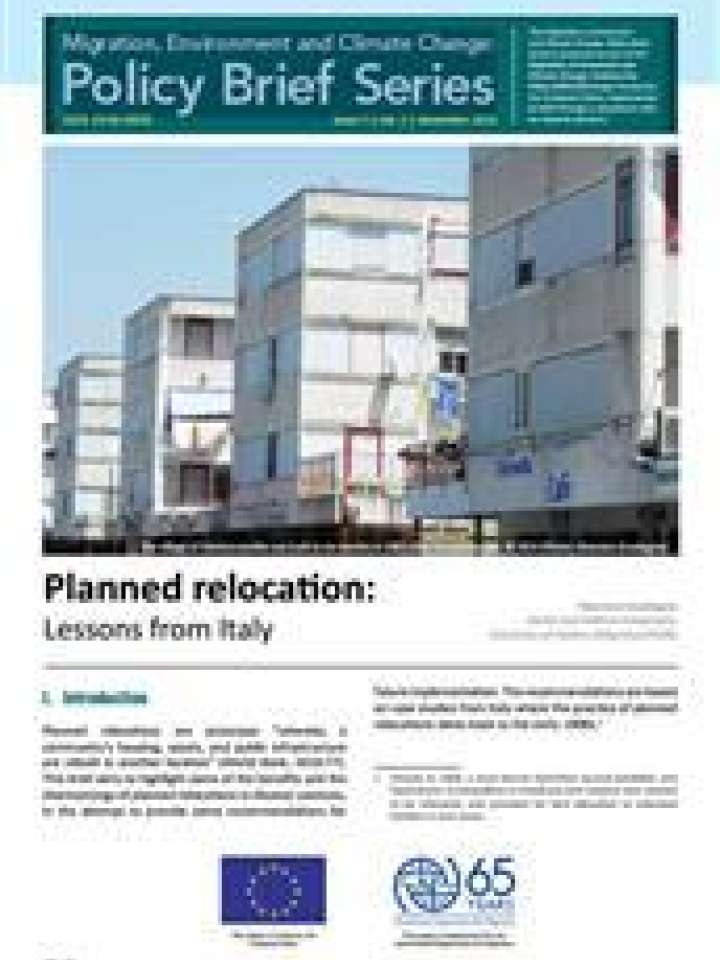Planned relocation: Lessons from Italy
This policy brief examines two earthquakes in Italy – the 2009 L’Aquila earthquake and the 1985 earthquake in Pozzuoli – that led to relocation in the aftermath, but which were implemented ad hoc and lacking normative and policy framework. The brief aims to highlight some of the benefits and the shortcomings of planned relocations in disaster contexts, in the attempt to provide some recommendations to both local and national authorities for future implementation.
The two recent cases are useful examples in understanding what negatively impacted the realization of successful planned relocation, and the brief attempts to provide some recommendations for future implementation. The lessons learned and recommendations are based on case studies from Italy where the practice of planned relocations dates back to the early 1900s:
- Relocation in the longer-term does not only mean the possibility of reconstruction, but should strive to enhance the development of the community;
- Post-disaster reconstruction can present opportunities to promote unexplored development strategies, and funding should be used to help local populations and enhance local environmental, cultural and economic sustainability;
- Negotiations and participatory planning process should be promoted; a network between citizens, local associations and economic actors should be developed to better monitor the procedures in order to avoid aggravation of existing and vulnerabilities and new ones;
- Implement income restoration programmes to accompany the relocation, in order to prevent the negative effects of loss of resources and livelihood opportunities, in particular for the more vulnerable groups;
- Access to economic and social services by providing adequate infrastructure are crucial to helping people resettle in productive, sustainable ways;
- Improve access to credit, implement transitional finance support and promote equal access to employment and inclusion for women, children and migrants;
- Provide compensation for lost assets and avoid social marginalization, alienation and negative psychosocial consequences; and
- In the case that relocation seems the best option, a pre-assessment should be conducted to take into consideration the potential social and economic impacts on the respective community.
Policy Brief Series, issue 7, volume 2, November 2016.
Explore further
